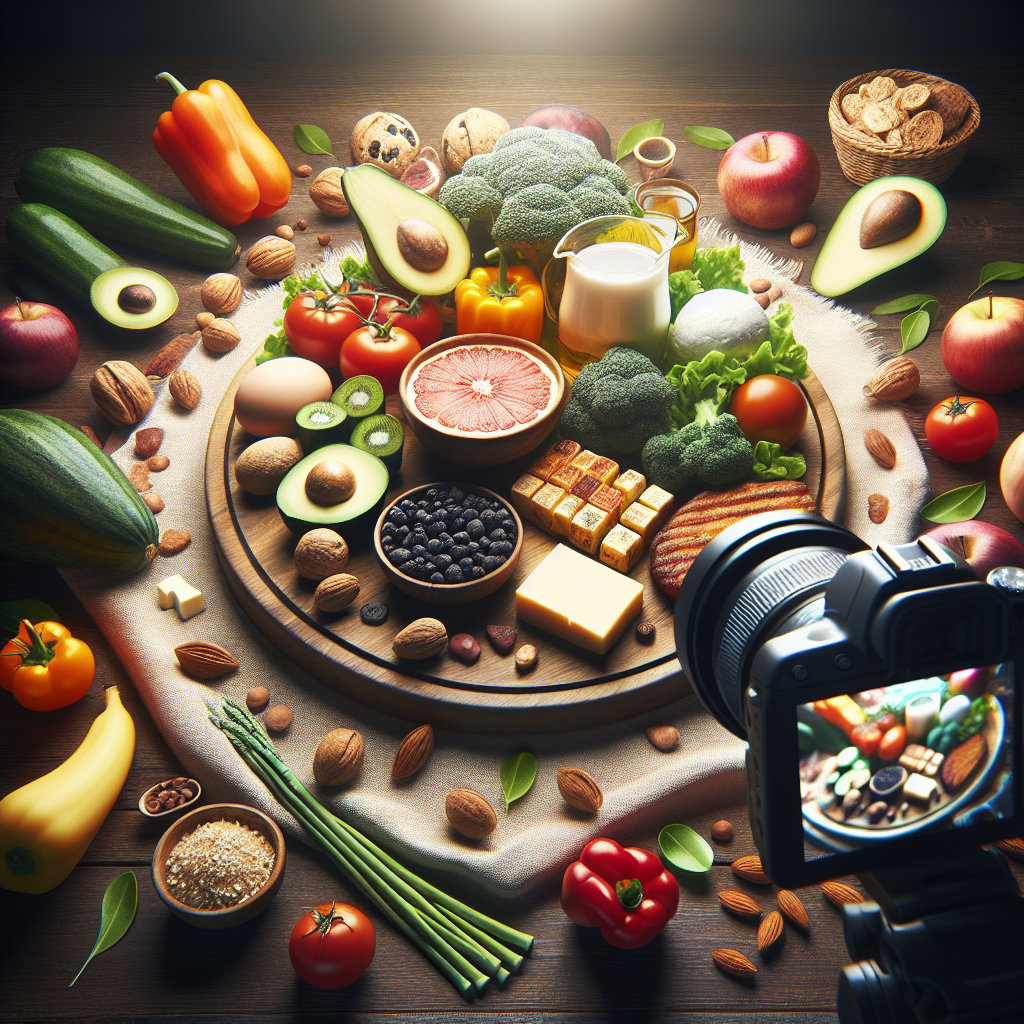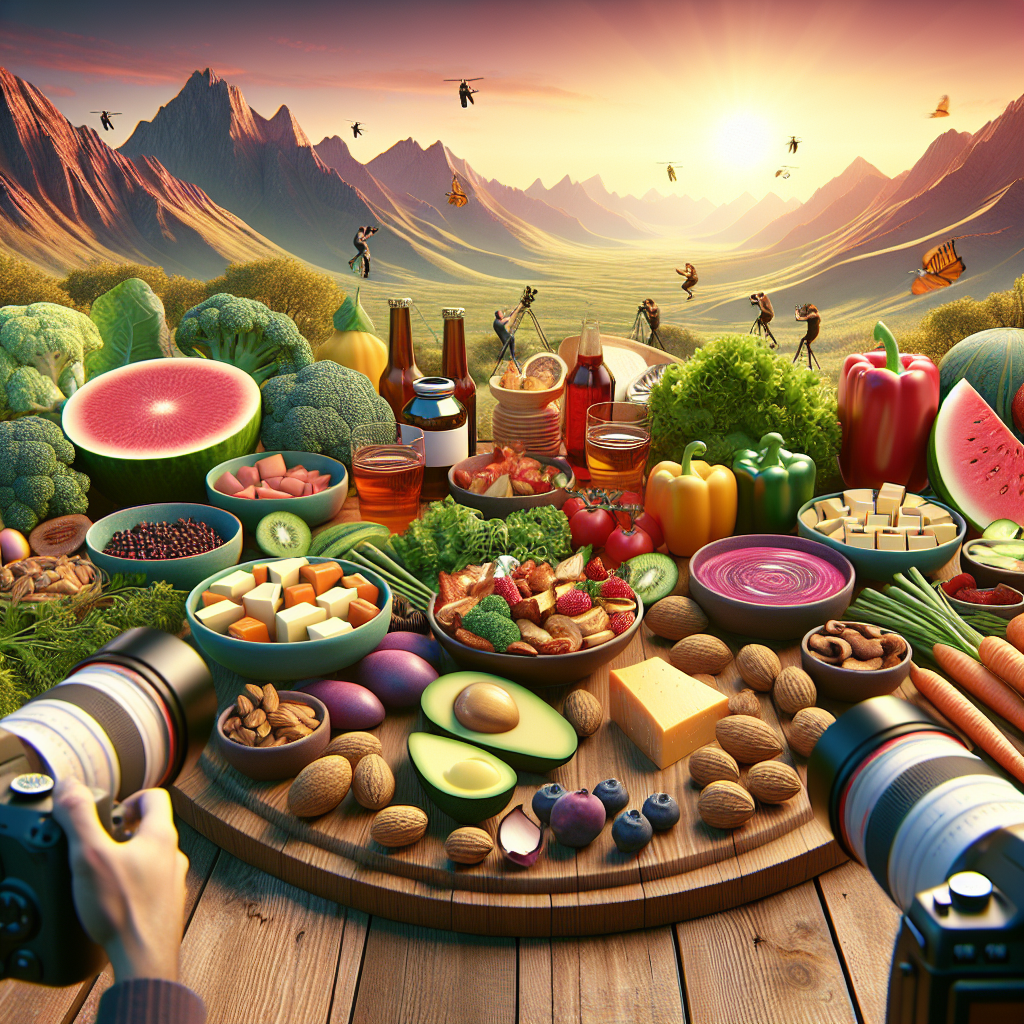
-
Table of Contents
8 Keto Foods that REALLY Should be in Your Life #shorts

The ketogenic diet, or keto diet, has gained significant popularity in recent years. This low-carb, high-fat diet is known for its potential benefits in weight loss, diabetes control, and improved heart health. However, the success of the keto diet largely depends on the types of foods you consume. In this article, we will explore eight keto foods that should be a part of your life for optimal health benefits.
1. Avocados
Avocados are a superfood that should be a part of any healthy diet, but they are particularly beneficial for those following a keto diet. They are high in heart-healthy monounsaturated fats, which are essential for a keto diet. Additionally, avocados are packed with fiber and are low in net carbs, making them perfect for the keto diet.
Avocados are also rich in several vitamins and minerals, including potassium, an essential nutrient that can help make the transition to a ketogenic diet easier. A study published in the American Journal of Clinical Nutrition found that a higher intake of potassium was associated with a reduced risk of stroke, especially ischemic stroke.
Moreover, avocados may help improve cholesterol and triglyceride levels. In one study, when people consumed a diet high in avocados, they experienced a 22% decrease in “bad” LDL cholesterol and triglycerides and an 11% increase in “good” HDL cholesterol.
Therefore, incorporating avocados into your keto diet can provide numerous health benefits, from weight loss to improved heart health.
2. Eggs
Eggs are one of the most versatile and nutritious foods on the planet, and they are incredibly keto-friendly. One large egg contains less than 1 gram of carbs and about 6 grams of protein, making eggs an ideal food for a ketogenic lifestyle.
Moreover, eggs have been shown to trigger hormones that increase feelings of fullness and keep blood sugar levels stable, leading to lower calorie intakes for up to 24 hours. This can be particularly beneficial for those trying to lose weight.
Furthermore, eggs are rich in several nutrients that many people do not get enough of, such as choline. Choline is an essential nutrient that is involved in many bodily functions, including brain development and health.
Therefore, including eggs in your keto diet can help you stay satiated, lose weight, and get the nutrients you need.
3. Meat and Poultry
Meat and poultry are considered staple foods on a ketogenic diet. They are rich in high-quality protein, B vitamins, and several minerals, including zinc, selenium, and iron. Furthermore, they contain no carbs, making them perfect for a keto diet.
Grass-fed meat is the healthiest choice because animals that eat grass produce meat with higher amounts of omega-3 fats, conjugated linoleic acid, and antioxidants than meat from grain-fed animals.
Several studies have shown that consuming adequate protein can help preserve muscle mass during weight loss, including a ketogenic diet. Moreover, higher protein diets can help suppress appetite and increase feelings of fullness, which can be beneficial for weight management.
Therefore, including meat and poultry in your keto diet can provide high-quality protein and other essential nutrients, which can help you maintain muscle mass and manage your weight.
4. Seafood
Fish and shellfish are very keto-friendly foods. They are rich in B vitamins, potassium, and selenium, yet virtually carb-free. However, the carb content in different types of shellfish can vary. For instance, while shrimp and most crabs contain no carbs, other types of shellfish do.
Salmon, sardines, mackerel, and other fatty fish are high in omega-3 fats, which have been found to lower insulin levels and increase insulin sensitivity in overweight and obese people. In addition, frequent fish intake has been linked to a decreased risk of disease and improved mental health.
Therefore, it’s recommended to consume at least two servings of seafood weekly on a ketogenic diet.
5. Cheese
Cheese is both nutritious and delicious. There are hundreds of types of cheese, and fortunately, all of them are very low in carbs and high in fat, making them perfect for the keto diet.
Cheese is also rich in other nutrients, including calcium, protein, phosphorous, and selenium. In addition, cheese is high in saturated fats, but it hasn’t been shown to increase the risk of heart disease. In fact, some studies suggest that cheese may help protect against heart disease.
Moreover, eating cheese regularly may help reduce the loss of muscle mass and strength that occurs with aging. A 12-week study in older adults found that those who consumed 7 ounces (210 grams) of ricotta cheese per day experienced increases in muscle mass and muscle strength over the course of the study.
Therefore, including cheese in your keto diet can provide essential nutrients and help preserve muscle mass and strength.
6. Low-Carb Vegetables
Non-starchy vegetables are low in calories and carbs, but high in many nutrients, including vitamin C and several minerals. Vegetables and other plants contain fiber, which your body doesn’t digest and absorb like other carbs.
Therefore, look at their digestible (or net) carb count, which is total carbs minus fiber. Most vegetables contain very few net carbs. However, consuming one serving of “starchy” vegetables like potatoes, yams, or beets could put you over your entire carb limit for the day.
The net carb count for non-starchy vegetables ranges from less than 1 gram for 1 cup of raw spinach to 8 grams for 1 cup of cooked Brussels sprouts. Vegetables also contain antioxidants that help protect against free radicals, which are unstable molecules that can cause cell damage.
Moreover, cruciferous vegetables like kale, broccoli, and cauliflower have been linked to decreased cancer and heart disease risk. Therefore, it’s recommended to include a variety of colorful vegetables in your keto diet.
7. Nuts and Seeds
Nuts and seeds are healthy, high-fat, and low-carb foods. Frequent nut consumption has been linked to a reduced risk of heart disease, certain cancers, depression, and other chronic diseases. Furthermore, nuts and seeds are high in fiber, which can help you feel full and absorb fewer calories overall.
Although all nuts and seeds are low in net carbs, the amount varies quite a bit among the different types. Therefore, you should be careful when eating nuts and seeds on a keto diet. However, you can still include them in moderation in your diet, as they are very high in nutrients.
8. Berries
Most fruits are too high in carbs to include on a ketogenic diet, but berries are an exception. Berries are low in carbs and high in fiber. In fact, raspberries and blackberries contain as much fiber as digestible carbs.
These tiny fruits are loaded with antioxidants that have been credited with reducing inflammation and protecting against disease. Therefore, berries, including blueberries, strawberries, and others, can be enjoyed in moderation on a ketogenic diet.
Conclusion
The ketogenic diet can be incredibly beneficial for weight loss, diabetes control, and improved heart health. However, the success of the diet largely depends on the types of foods you consume. Incorporating the eight keto foods discussed in this article into your diet can provide numerous health benefits, from weight loss to improved heart health. Remember, a diverse diet is a healthy diet!